15 Popular Foods You Should Avoid If You Have Asthma
Asthma is a condition that affects your airways, making it harder to breathe. While medication can help manage asthma, certain foods may trigger or worsen symptoms. It’s important to know what to avoid to keep your asthma under control. Here is a list of foods you should avoid if you have asthma, which may lead to increased inflammation or allergic reactions.
Dairy Products
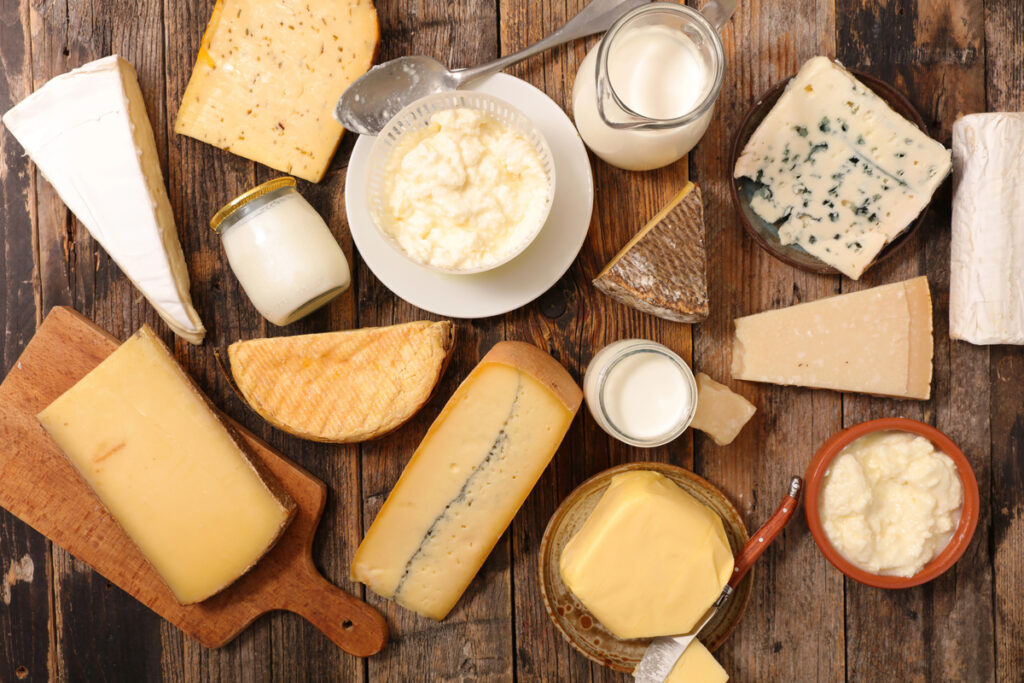
Dairy products like milk, cheese, and yogurt can trigger asthma symptoms in some people. These foods can increase mucus production, which may block the airways and make breathing more difficult. If you’re sensitive to dairy, it’s a good idea to avoid or limit it in your diet.
Many people with asthma find relief by switching to non-dairy alternatives like almond or soy milk. However, if dairy doesn’t seem to affect your asthma, there’s no need to cut it out completely. Keep an eye on how your body reacts to these foods and adjust your diet as needed.
Processed Foods
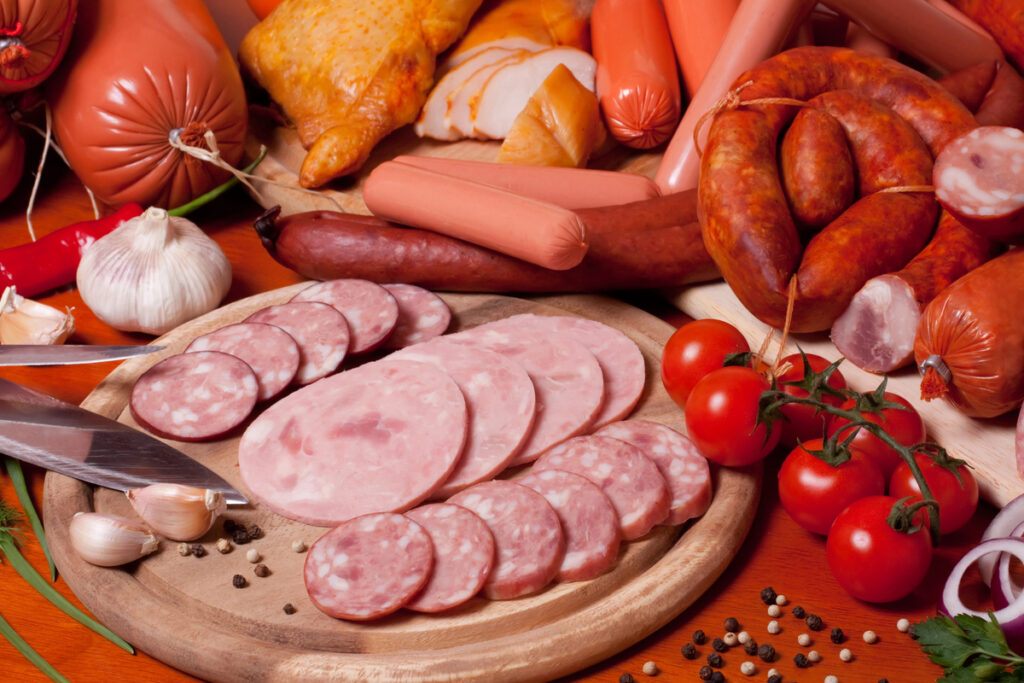
Processed foods are loaded with preservatives, artificial colors, and flavorings that can trigger asthma symptoms. These additives, like sulfites and sodium benzoate, are commonly found in snacks, canned goods, and frozen meals. Not only can they worsen asthma, but processed foods are also low in nutrients, which are important for overall health.
Eating whole, unprocessed foods helps reduce inflammation and supports lung function. Try to cook more meals at home using fresh ingredients to minimize your intake of these harmful chemicals. This can make a big difference in how well you manage your asthma.
Fried Foods

Fried foods are often high in unhealthy fats, leading to inflammation in the body, including the lungs. Eating too much fried food can worsen asthma symptoms and even lead to weight gain, which puts extra pressure on the respiratory system. Foods like French fries, fried chicken, and doughnuts should be eaten in moderation or avoided.
To reduce fat intake, opt for healthier cooking methods like grilling, baking, or steaming. Your lungs will thank you for making this small but important change. Plus, you’ll likely feel better overall by eating less greasy food.
Eggs

For some people with asthma, eggs can trigger allergic reactions that lead to asthma attacks. This is especially true for individuals who are allergic to egg proteins. Even if you don’t have a full-blown egg allergy, you might notice that your asthma symptoms flare up after eating them.
It’s best to consult with your doctor if you suspect eggs are a trigger. You can find plenty of egg substitutes in baking and cooking, like applesauce or flaxseeds, to avoid these problems. Paying attention to how your body reacts to eggs can help you make safer food choices.
Shellfish

Shellfish, including shrimp, crab, and lobster, are common allergens that can cause asthma symptoms to flare up. Even if you don’t have a known shellfish allergy, asthma sufferers can develop a sensitivity to these foods. The proteins in shellfish can cause a reaction that inflames the airways, making it harder to breathe.
If you experience symptoms after eating shellfish, it’s best to avoid them entirely. There are plenty of other protein sources, like chicken, turkey, and beans, that are safer for people with asthma. Be cautious when eating out, as shellfish is often used in restaurant dishes.
Salty Snacks
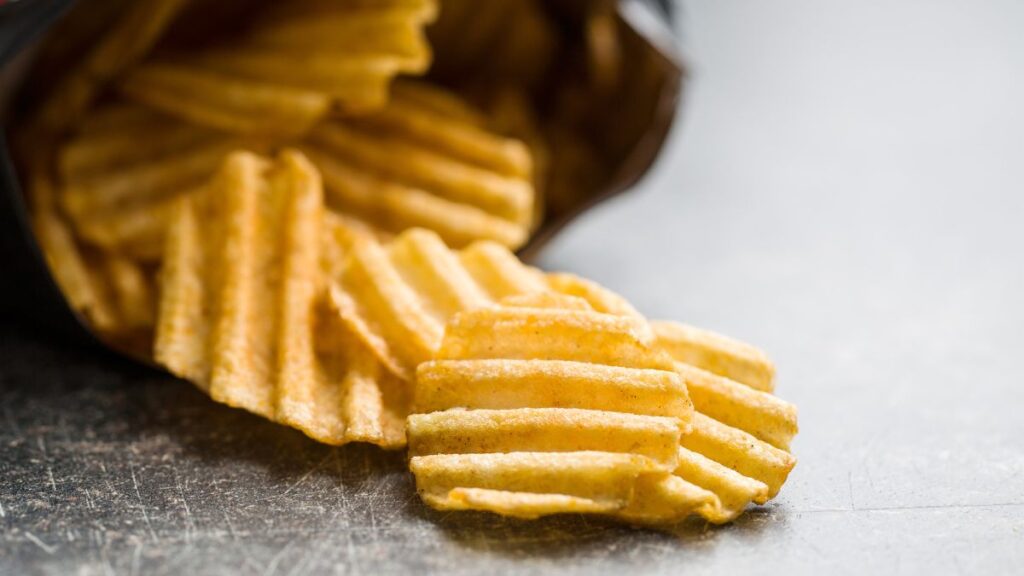
Eating too much salt can worsen asthma symptoms by causing inflammation and fluid retention in the body. Salty snacks like chips, pretzels, and crackers are especially bad because they offer little nutritional value. Reducing your salt intake can help control asthma and improve lung function.
Rather than reaching for processed salty snacks, try snacking on fresh fruits or vegetables. You can also season your food with herbs and spices instead of salt to keep flavors interesting without the adverse side effects. Making small changes to your salt intake can positively impact your asthma.
Soda and Sugary Drinks
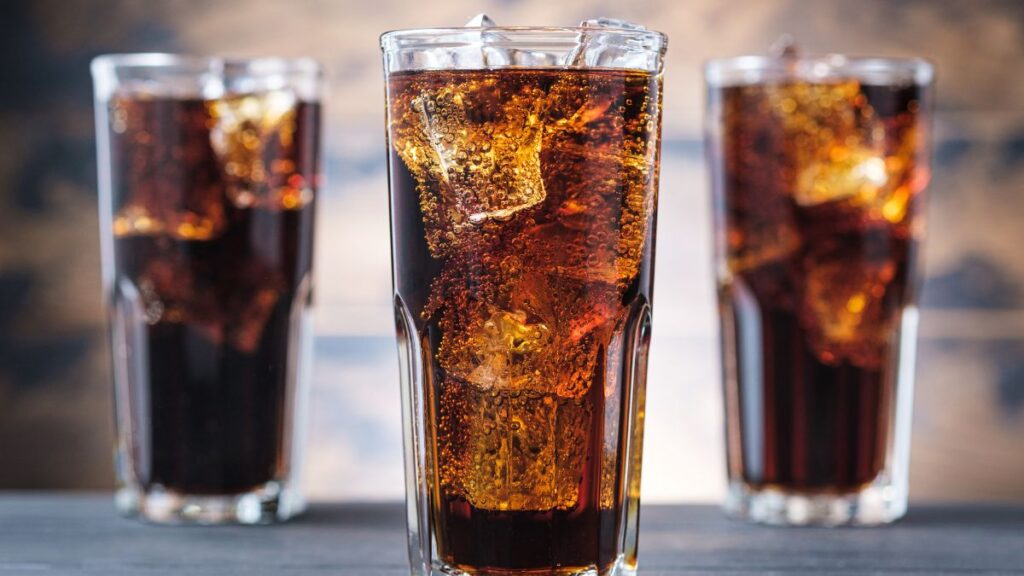
Sugary drinks like soda, fruit juices, and energy drinks can trigger asthma symptoms by promoting inflammation. The high sugar content in these beverages spikes your blood sugar levels and weakens your immune system. Additionally, many sodas contain sulfites, which can worsen asthma attacks.
Switching to water, herbal teas, or unsweetened beverages can help reduce your risk of asthma flare-ups. Staying hydrated with healthy drinks also helps thin mucus, making it easier to breathe. Cutting back on sugary drinks is an easy way to support better lung health.
Alcohol

Alcohol can be problematic for people with asthma because it often contains sulfites, which can trigger asthma attacks. Beer and wine are the worst offenders when it comes to sulfite content. Drinking alcohol can also lead to dehydration, which thickens mucus and makes breathing more difficult.
If you have asthma, it’s best to avoid or limit alcohol consumption, especially if you notice your symptoms worsen after drinking. Consider non-alcoholic beverages like sparkling water or mocktails when you’re out with friends. Your lungs will benefit from skipping the alcohol.
Artificial Sweeteners
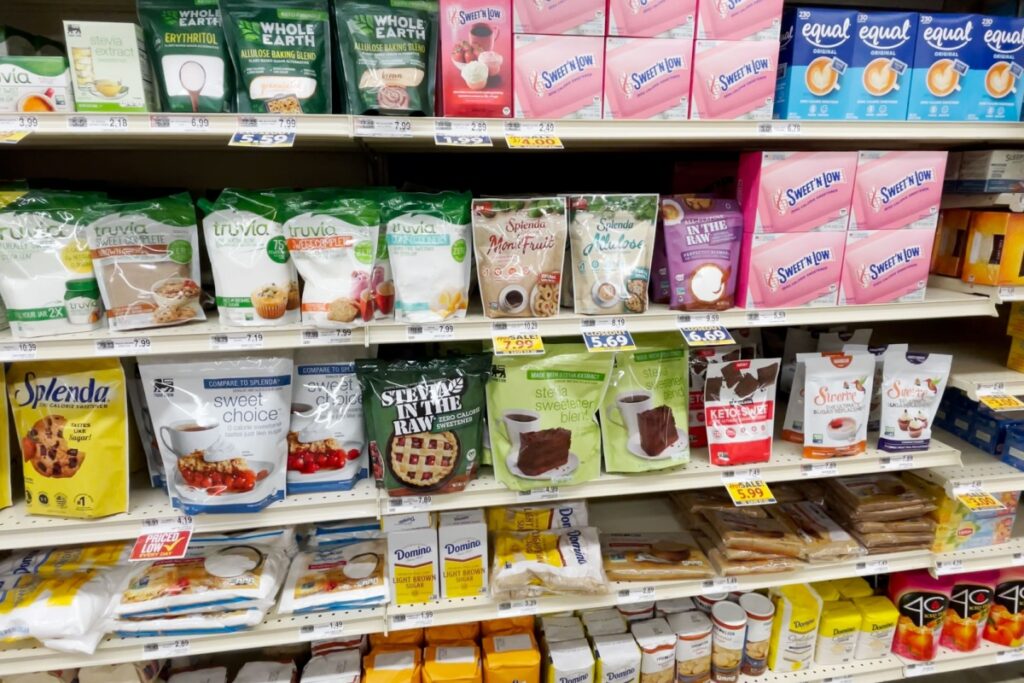
Artificial sweeteners like aspartame and saccharin are often found in diet sodas, sugar-free candies, and low-calorie snacks. While they might seem like a healthy alternative to sugar, these sweeteners can trigger asthma symptoms in some people. Aspartame, in particular, has been linked to allergic reactions and respiratory problems.
If you notice asthma symptoms after consuming products with artificial sweeteners, try cutting them out of your diet. You can replace them with natural sweeteners like honey or maple syrup, which are less likely to cause a reaction. It’s always better to opt for natural over artificial when managing asthma.
Pickled Foods

Pickled foods like pickles, olives, and sauerkraut often contain high levels of sulfites, which can trigger asthma symptoms. These foods are also high in salt, another factor that can worsen inflammation in the airways. While some people can enjoy pickled foods without issue, others may find that these foods worsen their asthma symptoms.
If you notice a link between pickled foods and your asthma, it’s best to avoid them. Fresh, unprocessed foods are always a safer option for people with asthma. You can still enjoy tangy flavors by using vinegar-based dressings on salads instead.
Cured Meats
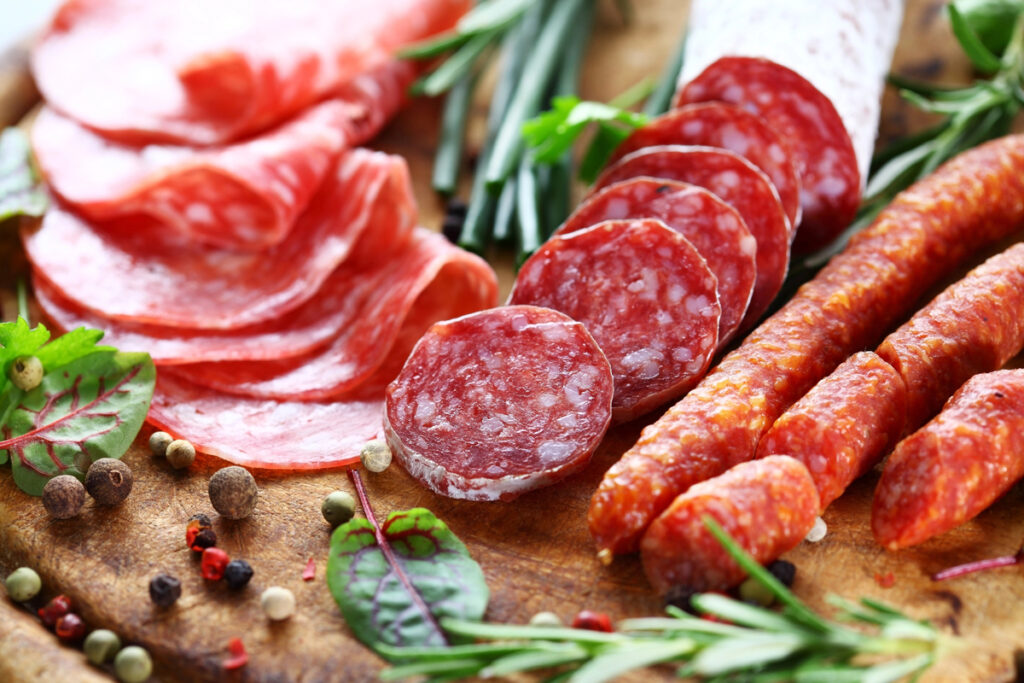
Cured meats such as ham, bacon, and sausages often contain preservatives like nitrates and sulfites, which can trigger asthma attacks. These chemicals are added to enhance flavor and extend shelf life, but they come at a cost for people with asthma. Processed meats are also high in fat and salt, which can contribute to inflammation and make breathing more difficult.
Limiting your intake of cured meats and opting for fresh, lean proteins can help keep your asthma under control. There are many healthier alternatives, like grilled chicken or turkey, that won’t aggravate your asthma symptoms.
Fast Food
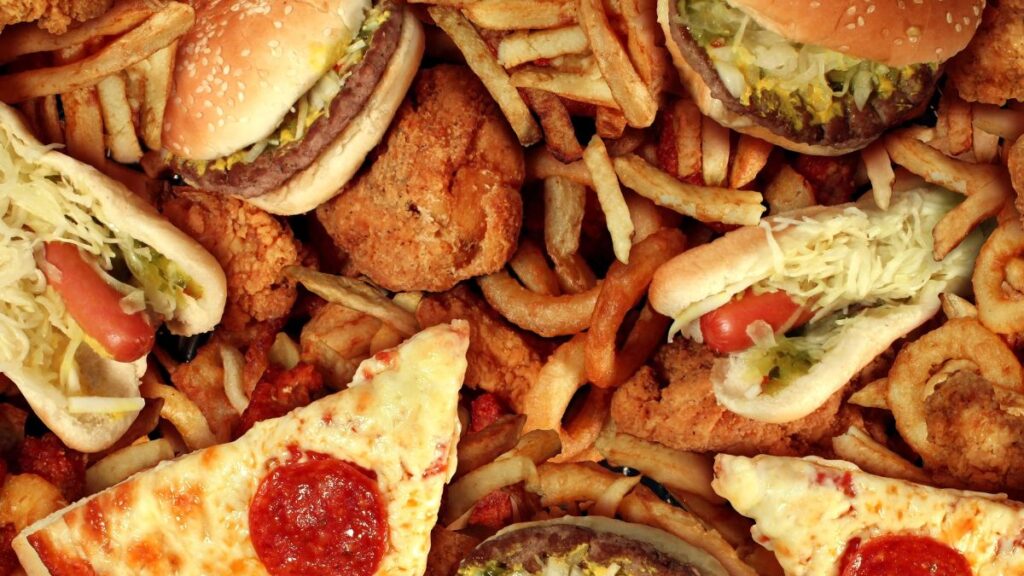
Fast food is often loaded with unhealthy fats, salt, and preservatives, all of which can trigger asthma symptoms. Meals from fast-food restaurants are usually highly processed and contain little nutritional value. Eating fast food regularly can lead to weight gain, which puts extra strain on your lungs and can worsen asthma.
It’s better to cook meals at home using fresh, whole ingredients to ensure you’re getting the nutrients your body needs. By reducing your reliance on fast food, you can improve your overall health and manage your asthma more effectively. Your lungs will appreciate the change!
Nuts

Nuts, especially peanuts, are a common allergen and can trigger asthma symptoms in those who are sensitive or allergic. Even if you don’t have a full-blown nut allergy, you may find that certain nuts cause breathing difficulties or worsen asthma symptoms.
If you suspect nuts are a trigger, it’s best to avoid them altogether or consult with your doctor about allergy testing. Fortunately, many nut-free snacks are just as tasty and healthier for your lungs. Keeping your diet nut-free can help prevent unwanted asthma flare-ups.
Chocolate

Chocolate contains several ingredients that can trigger asthma symptoms, including caffeine, theobromine, and, in some cases, milk and nuts. Some people with asthma may notice that their symptoms worsen after eating chocolate due to these ingredients.
It’s best to limit or avoid chocolate if you’re sensitive to chocolate. Dark chocolate may be a better option as it contains fewer additives, but it’s still important to be mindful of how your body reacts. Plenty of other treats you can enjoy won’t irritate your asthma.
Tomatoes
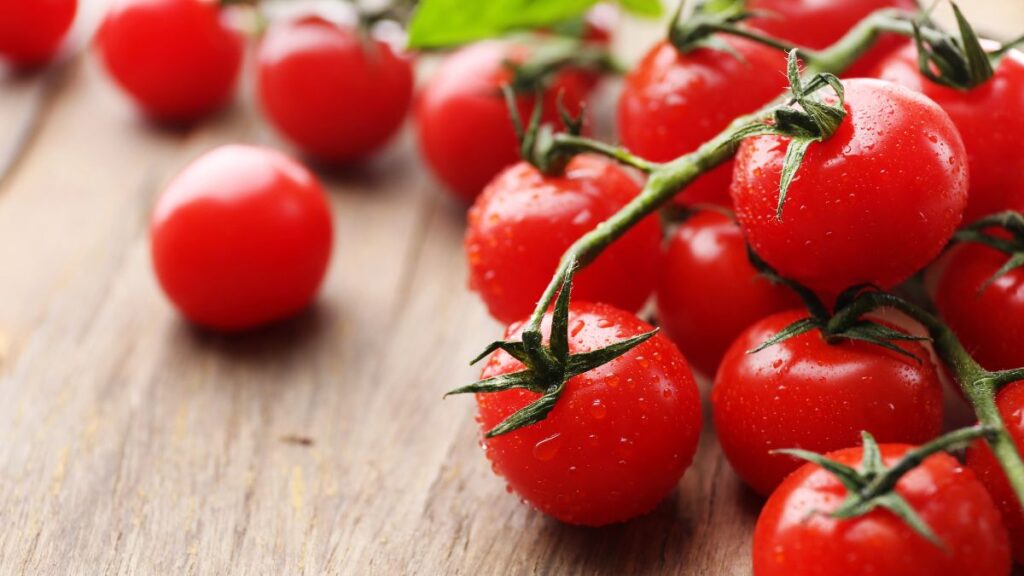
Tomatoes, especially in processed forms like sauces and ketchup, can worsen asthma symptoms for some people. This is because tomatoes contain histamines, which can lead to inflammation and allergic reactions. While fresh tomatoes are generally less problematic, monitoring how your body responds to them is still a good idea.
Consider cutting back if you notice asthma symptoms after eating tomatoes or tomato-based products. Plenty of other vegetables offer similar flavors without the risk of triggering asthma.
15 Things That Have Become So Expensive People Are Giving Them Up

With the cost of living steadily increasing, people are being forced to rethink how they spend their money. Many everyday items, services, and activities have become too expensive to justify.
15 Things That Have Become So Expensive People Are Giving Them Up
15 Things You Should Never Share With Anyone

While sharing personal information has become increasingly common, it’s essential to recognize that not everything is meant to be shared with others. Some aspects of our lives are best kept private to protect our well-being, relationships, and sense of self.







